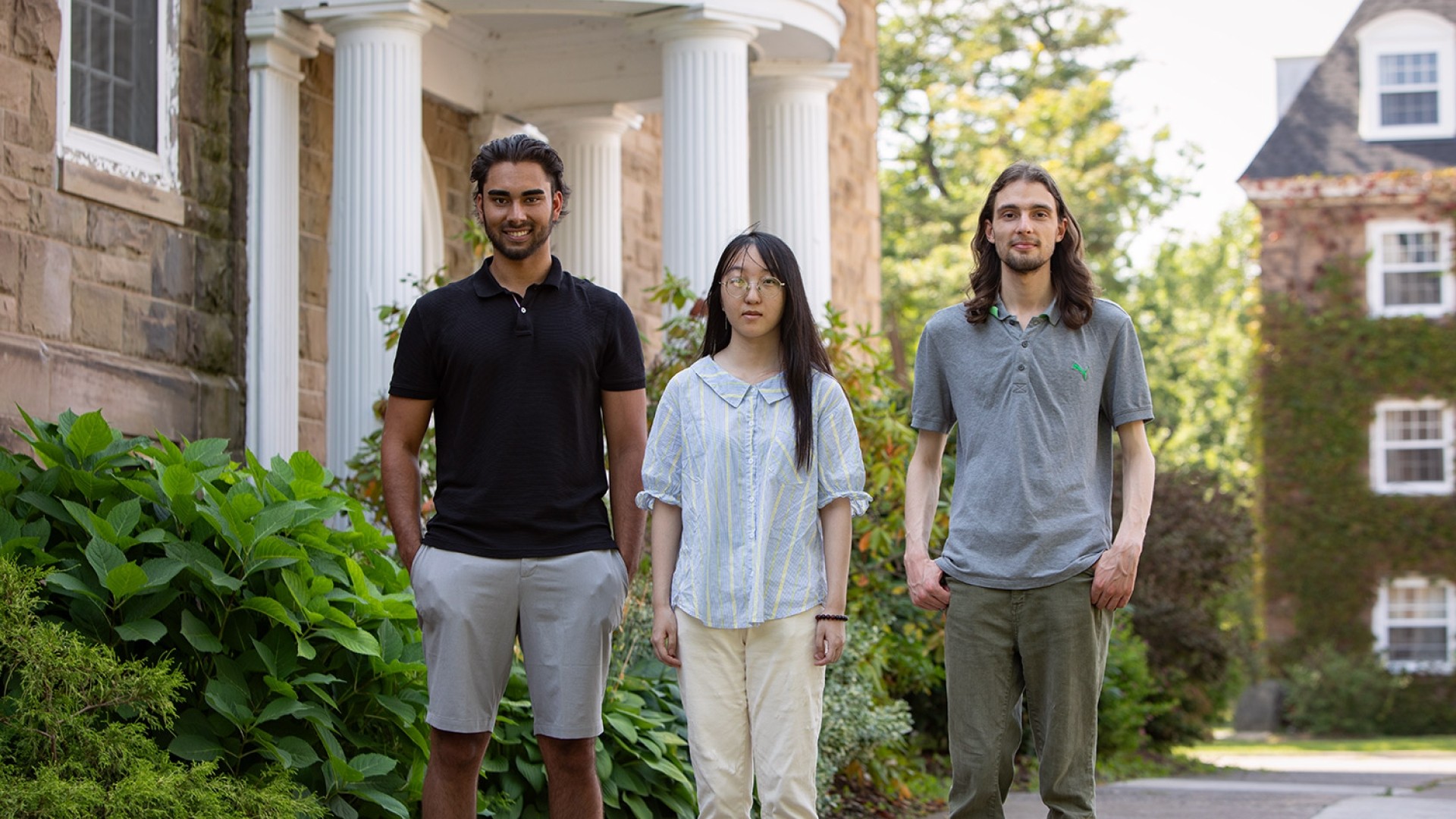
From AI research to work that could benefit mental health, three StFX computer science students had the chance to further their research projects this summer thanks to the generosity of the Alley Heaps Undergraduate Research Internship at StFX.
Students Liam Johnston, Xinyi Li, and Alastair May each received the internship, which provides $8,000 in funding and 14 weeks summer employment under the supervision of a StFX faculty member. The internships are part of the Dr. H. Stanley & Doreen Alley Heaps Chair, which provides for the support, exploration, and advancement of computing science at StFX.
BENEFIT TWOFOLD
“The benefit of this opportunity for me is twofold,” says Liam Johnston of Fall River, NS, a fifth year honours computer science student who is also doing a minor in mathematics and statistics and co-operative education.
“First, it allowed me to build more research skills in the field of computer science, which will lead to me pursuing a master's degree, potentially in the field of Natural Language Processing. Additionally, the topic of mental health is very significant to me, and I was grateful to be able to conduct research that could potentially benefit those who are struggling,” he says.
Working under the supervision of Dr. Milton King and Dr. Taylor J. Smith, Mr. Johnston used BERT models to classify mental health disorders among Reddit users based on their written posts.
“I'd like to highlight how understanding and supportive my main supervisor, Dr. Milton King, was during this experience. I had times during this opportunity where I was having difficulties in troubleshooting issues that were occurring and Dr. King was always there to make suggestions as to new things I could try, etc. I am very appreciative of his supervision, and I would recommend any computer science student at StFX who is interested in conducting a summer research project to reach out to him to see if he has a project that is a fit for you.”
IMPROVED SKILLS
Xinyi Li, a fourth year honours computer science student from Zhenjiang City, Jiang Su Province, China, worked under the supervision of Dr. Man Lin this summer.
Ms. Li says the research she conducted was under the Linux operating system, for embedded devices, and the scenario is a soft real-time system with multiple tasks and deadlines. “The aim is to implement reinforcement learning in the kernel and userspace, allowing the kernel to save energy by selecting the frequency according to the current system environment,” she says.
“During this research, I improved my many abilities such as programming skills, problem-solving skills, and communication skills. Since my plan is to continue my research during my postgraduate studies, this time I was able to gain research experience and improve my research-related skills. I have gained a certain level of understanding of how to conduct experiments and how to write papers for publication. These skills and experiences will make it easier for me to apply for graduate school.”
The opportunity was also a validation for past work and to build on this. “In the past, I have finished writing my honours thesis, and the current study builds on that further. This current research has a prototype of the system and the effects are still being tested. A future paper will be posted about this research. This takes me one step further in the field.
“My research fits into the kernel of a computing system, a part that is very difficult to debug and for which there is very little information on the web. Often when I encounter difficulties that I can't solve, I need to try to debug it myself for a long time. There are times when I get depressed and feel that the problem is unsolvable. However, it is in this process that I have improved my research skills,” she says.
FIELD VERY NEW
Alastair May, a fourth year computer science student from Antigonish, NS, says the aim of his research this summer was to program an AI that would teach course material using fun storytelling to improve the learning experience. His supervisor was Dr. Taylor Smith.
Mr. May says the opportunity meant that he had a chance to learn about and use AI models more easily. “It also meant being able to work on something that made learning easier, which was great for me because the experience of learning is often miserable,” he says.
“Parts of this field of study were so new that even as I worked on it and did research on a topic called ‘prompt engineering,’ a Wikipedia page I was referencing over a couple of days got an update mid-way through my usage of it.”

